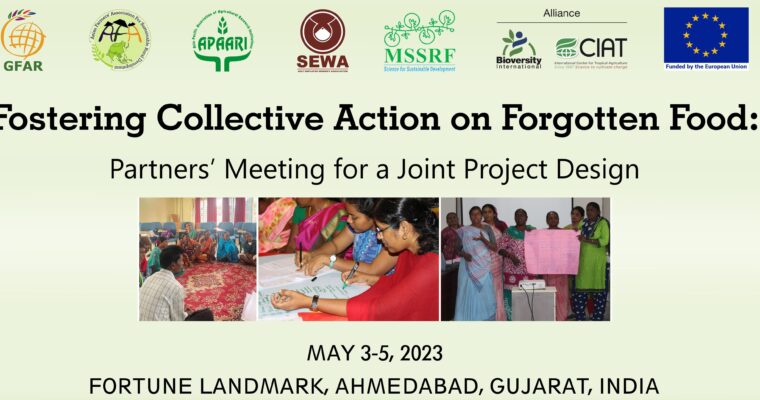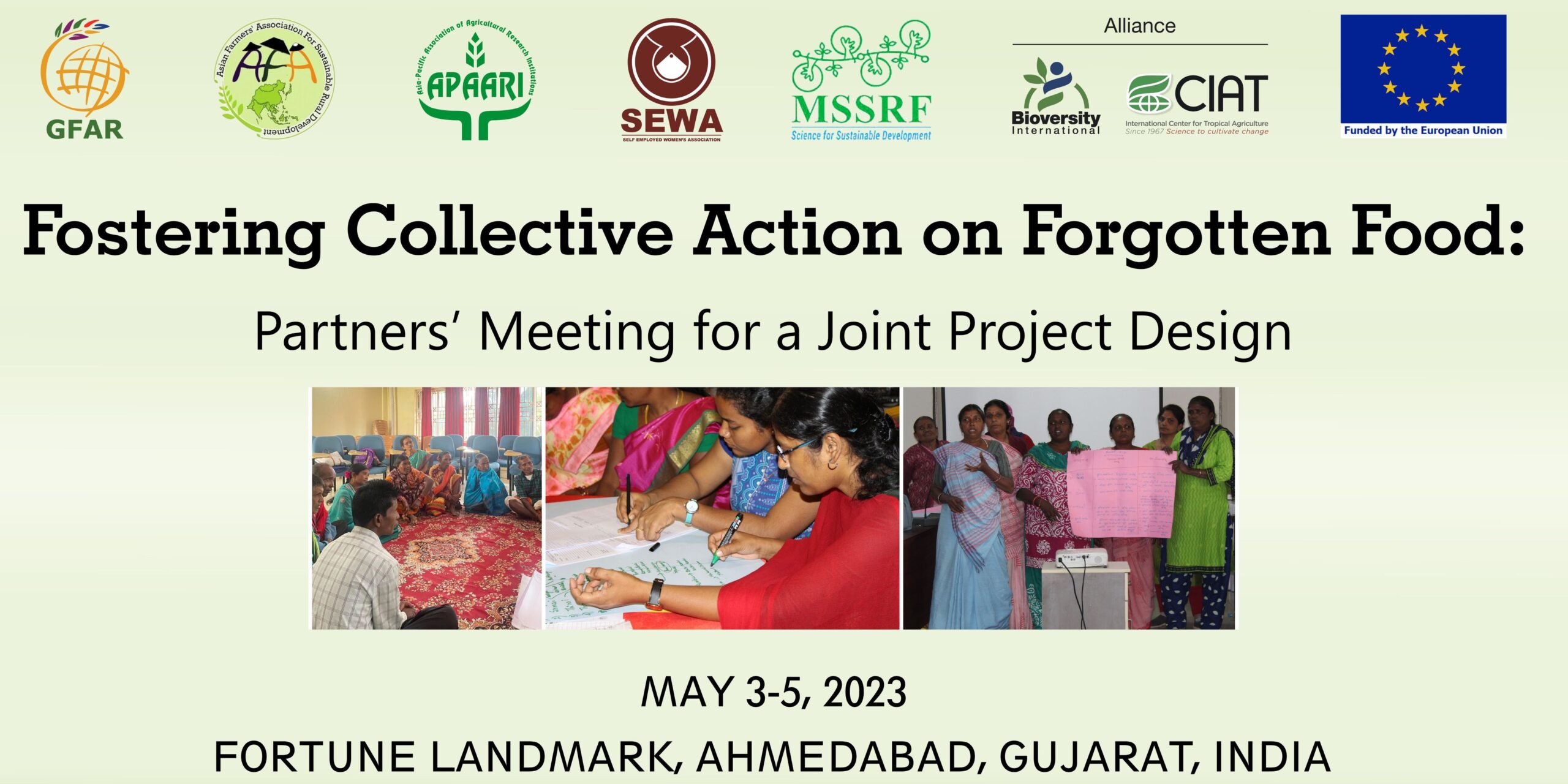Small and marginal Indian farmers including women farmers have been recipients and beneficiaries of innovation and knowledge “transferred” by scientists. However, their roles especially of the women farmers as the backbone of marginal farmer households in India are often not acknowledged. With an aim to highlight their contributions, particularly during India’s year of celebrating millets, the Self Employed Women’s Association (SEWA) in collaboration with the Asian Farmers’ Association for Sustainable Rural Development (AFA), the Asia-Pacific Association of Agricultural Research Institutions (APAARI), and M. S. Swaminathan Research Foundation (MSSRF), Biodiversity International, CIAT with the support of the Global Forum on Agricultural Research and Innovation (GFAR) and European Commission are organizing a Stakeholders’ Convening deliberation meeting, with the theme “Fostering a Farmer-Cantered Collective Action on Forgotten Foods”, on –3-5 May 2023 in Ahmedabad, Gujarat, India.
The multistakeholder workshop brings together representatives of regional farmers’ organizations AFA, national farmers organization SEWA, partner farmer groups of MSSRF, NESFAS, IMSE, NEICORD; national agricultural research and extension institutions (ICAR, Centre of Excellence on Millets, MLCU University), government agencies, non-governmental organizations (BAIF, WASSAN, A Dialogue), regional associations, and international development/research agencies (GFAR, CIAT/Biodiversity, WorldVeg Center, APAARI, AARINENA) to develop a complete programme design on forgotten foods. The event aims to raise awareness and build commitment to initiate a multi-stakeholder platform on forgotten food and crops.
It aims to provide food and nutrition security, resilience building, and climate adaptation to farmers who are custodians of forgotten food and biodiversity. The initiative combines farmers’ insights, perspectives, and experiences with innovative formal research, bringing the two groups together as equal partners in research.
To bring Forgotten foods to the forefront, reducing the distance between small farmers/producers and consumers and building farmer-owned supply chains is critical and important.
The initiative is a significant step forward to guiding the global forgotten foods agenda, and it is envisioned to attract other countries and societies to embrace forgotten food that is healthy and highly nutritious, contributing to more functional, diversified, and sustainable agri-food systems.
Earlier this year, local consultations with farmers took place in Gujarat, Meghalaya, Odisha, and Tamil Nadu, where farmers themselves identified forgotten crops, solutions for seed selection, conservation and multiplication, value addition, marketing, and various culinary applications. The outcomes of these consultations are a basis for this international workshop, which will demonstrate evidence, raise awareness and build commitment to initiate a multi-stakeholder platform on forgotten food and crops. The event also considers existing initiatives, such as the United Nations Decade of Family Farming, Farmers’ Forum, National Committees of Family Farming, and the International Year of Millets initiated by the Government of India.
The efforts are tuned to reaching the following:
- Build a common understanding of the Collective Action on Forgotten Food Framework (Global, Regional, and National);
- Foster collaboration between farmers’ organizations, agricultural research institutions, NGOs, and other value chain actors by initiating the formation of a platform/network to promote co-innovation, taking into account existing platforms such as the National Committees of Family Farming (NCFFs) and Farmers’ Forum.
- Jointly fine-tune and finalize the draft project proposal that will lead to the full programme design to be implemented in India; and
- Create synergy with similar programmes (such as the Nature Positive solutions)
This national-level initiative in India is a significant step to demonstrate evidence of India’s wealth in agrobiodiversity, culture, and cuisines. It is envisioned to attract other countries and societies to embrace forgotten food that is healthy and highly nutritious, and contribute to more functional, diversified, and sustainable agri-food systems.





Comments are closed